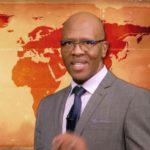Director, University of South Africa Press

Please tell us a bit about yourself (e.g. hometown, current locale, course of study).
I grew up in the rural town of Steynsrus, in the Free State countryside Province of South Africa. I matriculated in 1994, and studied Bachelor of Science in Physiotherapy at Witwatersrand University. Later changed career trajectory and studied Master of Business Administration in Finance at the University of Pretoria and progressed to Doctor of Business Leadership in Finance with the University of South Africa. After clinical physio work for about a decade, changed to professional management in both public and private institutions. Currently, based in the Capital Metro of Pretoria and work as both a publisher at Unisa Press, a Finance Consultant and an Executive Coach. In addition to serving on the Finance Committee of the SSP, I also serve as the Southern Africa Regional Deputy Director of Globethics.
Describe some of your current responsibilities, and what type of organization you belong to.
Unisa Press is a business unit of the University of South Africa (one of the mega universities globally, and the largest, comprehensive Open Distance and e-Learning University on the African continent). Unisa Press is the largest University Press in Africa publishing both books (scholarly and academic) and academic journals. My other responsibilities include providing strategic direction for the Press in line with the university objectives.
What was your first scholarly publishing role? How did you get that job? What path led to your current position?
Acting Director of Unisa Press. I was recruited to turnaround a collapsing Press and to provide a sustainable business model for Unisa Press. Have since been appointed the Director of the Press. I have joined the publishing space not through a linear career path, rather as a business professional and leader to rescue an ailing institution.
What are some of the surprises/obstacles that you’ve encountered during your career?
Critics and criticism: whether you like it or not, you will always be criticized, even when you are of the view that your deeds are from good intentions and/or are for the benefit of the society or organization. These, taught me a good lesson, believe in your convictions.
Failure: while it might sound as a cliché, but failure is indeed a real teacher. I think in my professional life I have failed more than others will dare to try.
The Curve Ball: always plan for the worst of all possible scenarios and hope/aim for the best outcome. Put it differently, rather be over-prepared than under-prepared.
Resources deficit: it is pure economic reality, you will not always get the resources you desire, so be an innovative, creative and resourceful individual
What advice would you give to people interested in a career in scholarly communications?
Being in scholarly industry and communication you are in a very strategic role because you are part of the ecosystem that shapes the future based on research. Always look for opportunities to evolve and in my opinion be agile at all material times. While technical skills are critical for invest in developing behavioral skills of networking with those in the industry. Learn from them and never miss a moment to all teach those whom are learning from. I do not believe in linear career growth and more so in the era of 4IR, be always prepared to ‘off-ramp’ or ‘detour’ should opportunities avail themselves. As I said earlier, I actually am ‘an accidental publisher’.

